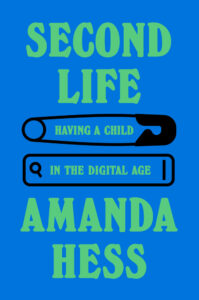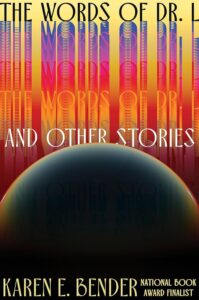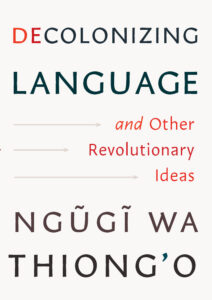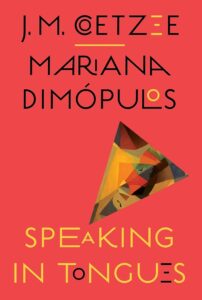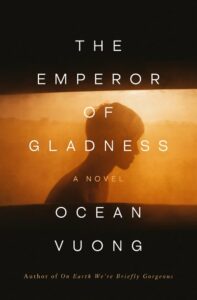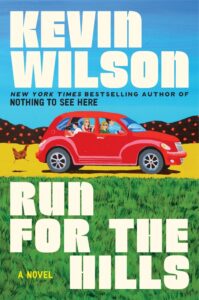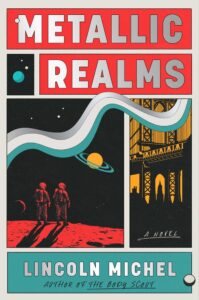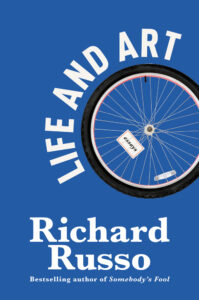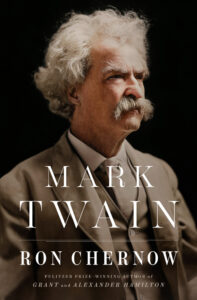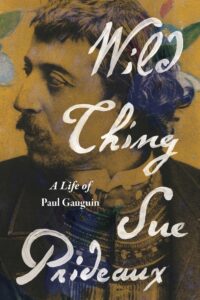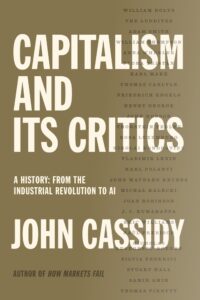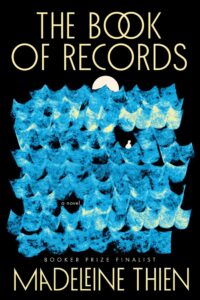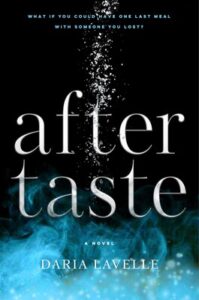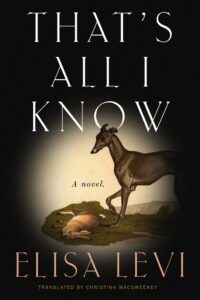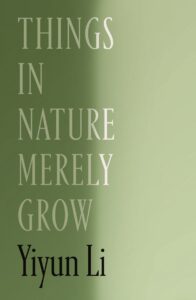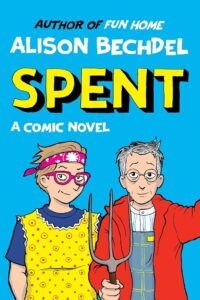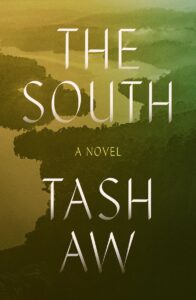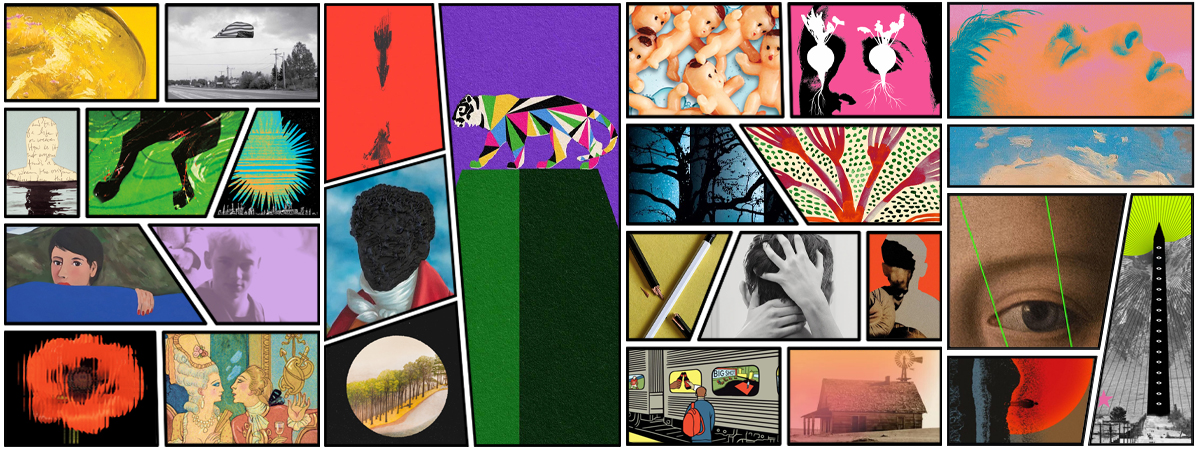
Lit Hub’s Most Anticipated Books of 2025
291 Books We're Looking Forward to in the New Year
MAY
Paula Bomer, The Stalker
Soho Press, May 6
This is pitched as “an Untalented Mr. Ripley, a Dumb American Psycho,” which makes me laugh, and also makes me curious—how much can one loathe a literary character? Chelsea Bieker calls this an “impeccable character study of the least self-aware man on earth,” which sounds potentially maddening and also potentially hysterical. She also calls it “risky and brilliant, dark as hell and bitingly comic as only the masters can pull off,” so I’m in. –ET
Amanda Hess, Second Life: Having a Child in the Digital Age
Doubleday, May 6
In her debut memoir, New York Times critic and relentlessly sharp observer of internet culture Amanda Hess writes about the fascinating, maddening anxiety nest that is Very Online Parenting. Through the lens of her own experience of pregnancy and new motherhood, Hess creates a chronicle of the many ways in which the online world shapes and warps our experiences of child-rearing in America. Angela Garbes writes, “The honesty of Second Life took my breath away,” which is perhaps the most compelling praise for a memoir. –JG
Karen E. Bender, The Words of Dr. L: And Other Stories
Counterpoint, May 6
The latest collection from the National Book Award finalist is a collection of stories about “the ways parents and children separate at different times of life”—a topic that is, I’m sure, present for a whoooole lot of people my age. The stories range from the mundane to the extraordinary, but all of them are bound by Bender’s keen insights into that most universal (and beautiful, and frustrating) of relationships. –DB
Ngũgĩ wa Thiong’o, Decolonizing Language and Other Revolutionary Ideas
The New Press, May 6
This expansive work of historical theory takes on imperial education policies and “linguistic feudalism.” A deeply considered case for reframing how we think about native tongues, Decolonizing Language looks to be an eye-popping argument from one of our most formidable thinkers. –BA
J.M. Coetzee and Mariana Dimópulos, Speaking in Tongues
Norton, May 6
We all want to read more books in translation, but we should also consider what is the role of the translator in the books we read. Speaking in Tongues is a dialogue between Nobel Laureate J.M. Coetzee and translator Mariana Dimópulos; a discussion of the linguistic and philological questions that writers and translators constantly ask themselves. If you read Gregory Rabassa’s If This Be Treason, anything by Lawrence Venuti, or Damion Searls recent The Philosophy of Translation, this feels like the next interesting discussion on the politics of translation. –EF
Ocean Vuong, The Emperor of Gladness
Penguin Press, May 13
A May-December friendship novel from one of our great poets of the heart—following the unexpected bond formed over the course of a year between a suicidal teen and an elderly woman sliding into dementia. Have your tissues to hand, as the beauty will almost certainly bring you to tears often. What a cathartic gift! –DB
Kevin Wilson, Run for the Hills
Ecco, May 13
Ever since his debut novel The Family Fang, I’ve been a day-one Kevin Wilson reader. This latest is apparently a family road-trip novel unlike any other—newly-discovered half-siblings setting off across American in a PT Cruiser (lol) to find their other half-siblings. I’m sure it’s going to be hilarious and a little wacky and a total bundle of fun. –DB
Lincoln Michel, Metallic Realms
Atria, May 13
In Michel’s new novel, a young writer is determined to defend the legacy of a literary group that produced a sci-fi masterpiece. The story soars across galaxies but finds its emotional heft in a deft portrait of literary lives in New York and the many dramas of their mingled ambitions and disappointments. –DM
Richard Russo, Life and Art: Essays
Knopf, May 13
A new essay collection from Russo finds the author wrestling with grand notions of art and artistic lives, but as ever, he also looks at the intensely human dramas of his own family and conjures up moments of great compassion and transcendence. –DM
Ron Chernow, Mark Twain
Penguin Press, May 13
The latest in Chernow’s series of Big Biographies of Big Men is one Samuel Clemens—a literary subject at last, and I’m here for it. Give Mark Twain the Hamilton treatment! Come on, it’d be funny. –ET
Sue Prideaux, Wild Thing: A Life of Paul Gauguin
Norton, May 13
New research challenges much of what has been previously understood about Gauguin in this reconsideration of the famous Post-Impressionist painter; Sue Prideaux incorporates newly discovered and translated writing by Gauguin and his contemporaries, and even sampled one of his teeth to upend the myths about who Gauguin was. The resulting biography paints Gauguin as complicated, but not as nefarious as we may have been told. Wild Thing reveals not just an immensely influential artist, but also an anti-colonialist who resisted French injustices and championed native peoples. –JF
John Cassidy, Capitalism and Its Critics: A History: From the Industrial Revolution to AI
FSG, May 13
It’s about time we had a history of capitalism told through the eyes of its critics. For too long the predominant global system for safeguarding the power of the few against the needs of the many has been thought of like the weather: inevitable and eternal, something that cannot be changed, that can only be borne or enjoyed, depending on the day. Cassidy is more storyteller than bomb thrower, and one can only hope this gets the mainstream attention it deserves. –JD
Madeleine Thien, The Book of Records
Norton, May 20
Thien’s 2016 novel Do Not Say We Have Nothing, about three generations of Chinese revolutionaries, was the sort of epic historical story that felt so expansive you’re unsure how she kept all the plates spinning. With The Book of Records, Thien tells a father-daughter story across an even more ambitious plane—in a labyrinthine, magical building called The Sea that is made of time; characters from the past include Hannah Arendt, Spinoza, and Tang Dynasty poet Du Fu. A meditation on human migration and the role of fate in history, this is absolutely a must read. –EF
Caroline Fraser, Murderland: Crime and Bloodlust in the Time of Serial Killers
Penguin Press, May 20
Fraser’s true-crime history “transcends true-crime voyeurism and noir mythology,” exploring the lives and careers of American serial killers including Ted Bundy, the Green River Killer, the I-5 Killer, the Night Stalker, the Hillside Strangler, and even Charles Manson. But “Fraser’s Northwestern death trip begins to uncover a deeper mystery and an overlapping pattern of environmental destruction.” Is there an environmental reason why there were so many? Is there an answer as to why the murders were so weirdly senseless and nightmarishly gruesome? If she made the story of Laura Ingalls Wilder propulsive, image what she can do with serial killers… –EF
Daria Lavelle, Aftertaste
Simon & Schuster, May 20
This much-hyped new novel is a love story crossed with a kitchen fable. When Kostya Duhovny discovers that he can reunite people with their dearly departed by whipping up their favorite foods, he heads for the high-octane world of New York restaurants. But as his skills sharpen, emotional disaster looms. This is a strange, sensation-heavy book that sounds out a connection between hunger and grief. “Delicious” feels like low-hanging fruit, description-wise–but the sumptuous details paired with propulsive pacing do make the word feel apt. –BA
Elisa Levi, tr. Christina MacSweeney, That’s All I Know
Graywolf, May 20
If you know nothing else about Americans’ reading habits, you’ll be aware that even voracious U.S. readers tend to read domestic writers almost exclusively, and we consume even fewer works in translation. So when an indie press takes a risk on a translated work—and when that work is a “formally ambitious sustained monologue”—it’s an even bigger financial risk than your average book release. With that in mind, that means That’s All I Know had to knock the socks off of a lot of people to even be slated for a US release; with a press like Graywolf behind it, I’m expecting it to knock my socks off, too. –CK
Yiyun Li, Things in Nature Merely Grow
FSG, May 20
Yiyun Li begins her book with a painful fact: “There is no good way to state these facts, which must be acknowledged. My husband and I had two children and lost them both: Vincent in 2017, at sixteen, James in 2024, at nineteen. Both chose suicide, and both died not far from home.” Li’s more experimental 2019 book Where Reasons End imagines a conversation between a mother and her dead son; here, she writes more directly, “The verb that does not die is to be. Vincent was and is and will always be Vincent. James was and is and will always be James. We were and are and will always be their parents. There is no now and then, now and later, only, now and now and now and now.” Li is one of the best contemporary writers we have, this book will be dark, beautiful, and a must read. –EF
Alison Bechdel, Spent
Mariner, May 20
A new book from Alison Bechdel—which concerns the life of a cartoonist named Alison Bechdel, along with a few other characters you may recognize—is always a literary event. And I’m fairly confident that by May a comic novel is exactly what we’re all going to need. –ET
Tash Aw, The South
FSG, May 27
The summer after his grandfather’s death, Jay goes to Malaysia to see the failing farm they inherited. Jay’s father sends him to work on whatever is left of the land; he’s drawn to Chuan, son of the farm’s manager; what follows is a novel of change and desire. I loved Aw’s debut, The Harmony Silk Factory, and am looking forward to this new novel described as both “once sweeping and compressed… told with uncommon grace and beauty.” –EF










